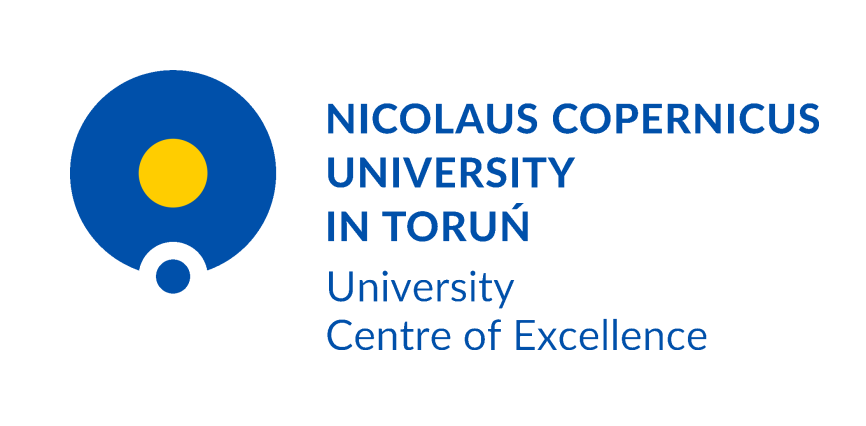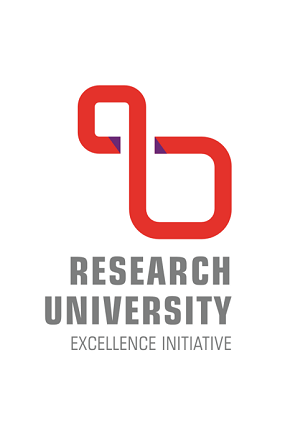Research LABs
Future Digital Retail Lab
Head: prof. Michał Polasik
The laboratory is a part of the Centre for Digital Economy and Finance of the Nicolaus Copernicus University in Torun. The project started in April 2020.
The aim of the establishing of the Future Digital Retail Lab by the Nicolaus Copernicus University is to create a complete research infrastructure enabling conducting studies in terms of the most significant technological and market changes in the area of sales and retail services in the world. The project concerns the creation of a self-service store-laboratory in which it will be possible to test many elements of the automation of sales and payment processes, user experience, as well as supply chain management.
With the use of a set of cameras and sensors, eye-tracking and EEG emotion measurements, persons in-store recognition & tracking, and deep learning algorithms, the whole process from product selection, through payment processing, to supply chain planning will be studied.
The laboratory will consist of three groups of elements:
- Using a series of cameras, including IP cameras and cameras integrated with Raspberry pi computers allows them to make a multidimensional observation of customers.
- The system analyzes the image from cameras (Computer Vision and Deep Learning), including computers with high-power graphics processors.
- Digitally extended store functionalities, such as smart shelves and smart mirror, self-service checkout, payment terminals and online checkout as well as beacons tags.
- Wearables measuring devices – mobile eye-tracking and EEG headset, which allow to study changes in emotions and directing the attention of consumers while shopping.
Customers will be monitored by a network of intelligent cameras, and the goods they select will be registered. The laboratory will enable testing of various types of digital technologies (for example customer identification through a mobile application or biometric face reading) as well as carrying out research inside shoppers’ behaviour and measuring their satisfaction level.
Geo-Social Environmental Lab
The Geo-Social Environmental Laboratory (GSEL) is a multidisciplinary research unit that combines two major disciplines: social geography and environmental psychology. Our primary research aim is to analyze how its inhabitants perceive the urban and geographical environment and how those perceptions influence environment-related behavior.
The researchers united within GSEL focus on the following areas:
- Place attachment and the role of the physical and social features of spaces in the development of people’s emotional bonds with places.
- Perception of a place’s history and place continuity in the development of place identity.
- The perception of cities’ past and the ways that it shapes current attitudes towards multicultural past.
- Mobility as related to emotional bonds with places, including the role of having more than one living area.
- Pro-environmental attitudes and behaviors and their connections with place perception and social (national) identity.
- Perception of place changes, including the changes due to the revitalization processes of degraded urban spaces.
- Effects of tourism development on the transformations of urban areas.
- Socioeconomic and environmental determinants of leisure time activities.
Laboratory for the Study of Collective Memory in Post-communist Europe
It will soon be a quarter of a century since the memorable events of the turn of 1989-1991. One after another, like a house of cards, the communist regimes collapsed and the so-called transition (or transformation) period began in the countries of the former communist bloc. Soon afterwards, the initial euphoria of masses of protesters was replaced by the arduous building of sustainable democratic institutions, rule of law and functioning market economy, as well as – implied by all these processes – hardships and social costs. Just as every communist country had its own specificity, the paths of their post-communist political transformations also differed, leading not always and not everywhere to the same effects. Yet, there are many common features, and one of them is certainly the practice of constantly referring to the communist past and looking from this perspective at present problems and future challenges.
Precisely this view underpins our work. Our goal is to thoroughly study the phenomenon of post-communist collective memory by using research methods of various disciplines and by focusing on the whole geopolitical area spanning from Russia to Albania. In practical terms, we intend to examine and systematize the existing body of knowledge on collective memory in post-communist Europe, to follow up with new empirical research on this field, and to disseminate the results of our work via publications and international cooperation. For this purpose, on the basis of the research grant no. 2011/03/D/HS2/06170 awarded by the Polish National Science Centre we have established at the Nicolaus Copernicus University in Toruń, the Laboratory for the Study of Collective Memory in Post-communist Europe – in short POSTCOMER .
We are a group of researchers specializing in various disciplines of social sciences and broadly defined humanities. In the Laboratory we aim to conduct in-depth analysis of collective memory of communist past in formerly communist countries, by putting an emphasis on interdisciplinary and comparative aspects of our work. Many researchers have already examined the subject of collective memory of communism, focusing however either on selected social groups or topics – such as for example lustration, and analyzing only few countries at most. Our aim is to broaden the spectrum of analysis both in terms of space and topics under inquiry. Obviously, we will concentrate on analyzing the official discourses of memory, expressed through historical, educational and cultural policies of various state agents and institutions. However, we intend to closely study also other social practices and expressions of memory work, which often oppose the official discourses. In addition to that, we aim to look at collective memory from different points of view: of men and of women, of politicians and of the person in the street, of intellectuals or professional historians and of young students, of those who represent majority, and of those who constitute a minority.
Finally, we believe that the collected empirical material will allow us to initiate discussions on theoretical issues, by both systematizing the existing body of knowledge and by enriching it with new concepts and methodological approaches. As a first step we intend to systematize the existing terminological chaos within post-communism studies by preparing and publishing online a Lexicon that will explain basic terms and concepts related to post-communism and in particular to the post-communist collective memory. We expect our research not only to enhance understanding of the socio-political contexts, mechanisms and social implications of collective memory in post-communist Europe, but also to contribute to further development of theoretical debates within this field of study.
For even more info, go to: http://www.postcomer.umk.pl/en/
Center for Language Evolution Studies
Center for Language Evolution Studies (CLES), founded in 2012 at Nicolaus Copernicus University, is mainly concerned with research on language evolution and linguistic phenomena such as politeness, CMC, sound symbolism, gesture and sign language. We conduct research with our foreign partners from Lund University, Swede, Vienna University, Austria, Roma Tre University, Italy, University of Tubingen, Germany, West Australia University, Australia, and University of Lisbon, Portugal. We are working on several grant projects, funded by the Polish National Science Centre (NCN) and NAWA agency. Currently, we are seeking the link between pantomime and the evolution of communication, we also look for pantomime universals. In another project, we are defining the Science of Language Evolution – we perform a meta-analysis of the data on the evolution of language, and create databases to structure our knowledge of this scientific area.
CLES seeks to answer such questions as: How did language emerge? How did language evolve? Was there a transition between nonverbal and verbal (proto)communication? Do new media change the way we communicate? And many more.
The CLES Lab is located in Collegium Maius in the beautiful Old Town of Toruń. It houses equipment and software including an EyeLink 1000 Plus eye tracker, a biofeedback set, Rokoko Smartsuit Pro motion capture set, a fully equipped sound and video studio, and a range of software licences including E-Prime with Chronos, LabVanced, nVivo and SPSS. We are part of the Excellence Initiative – Research University Programme at the host institution in Toruń, Poland.
For even more info, go to: https://cles.umk.pl/


 ul. Fosa Staromiejska 3, 87-100 Toruń
ul. Fosa Staromiejska 3, 87-100 Toruń